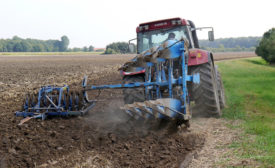News
New NIOSH study describes drug overdoses at work
A look at the workers and workplaces affected by substance use on the job
May 16, 2019
Court of Appeals to roofing contractor: pay fines & abate hazards
OSHA requirements "are not just paperwork exercises"
May 16, 2019
Never miss the latest news and trends driving the safety industry
eNewsletter | Website | eMagazine
JOIN TODAYCopyright ©2024. All Rights Reserved BNP Media.
Design, CMS, Hosting & Web Development :: ePublishing










